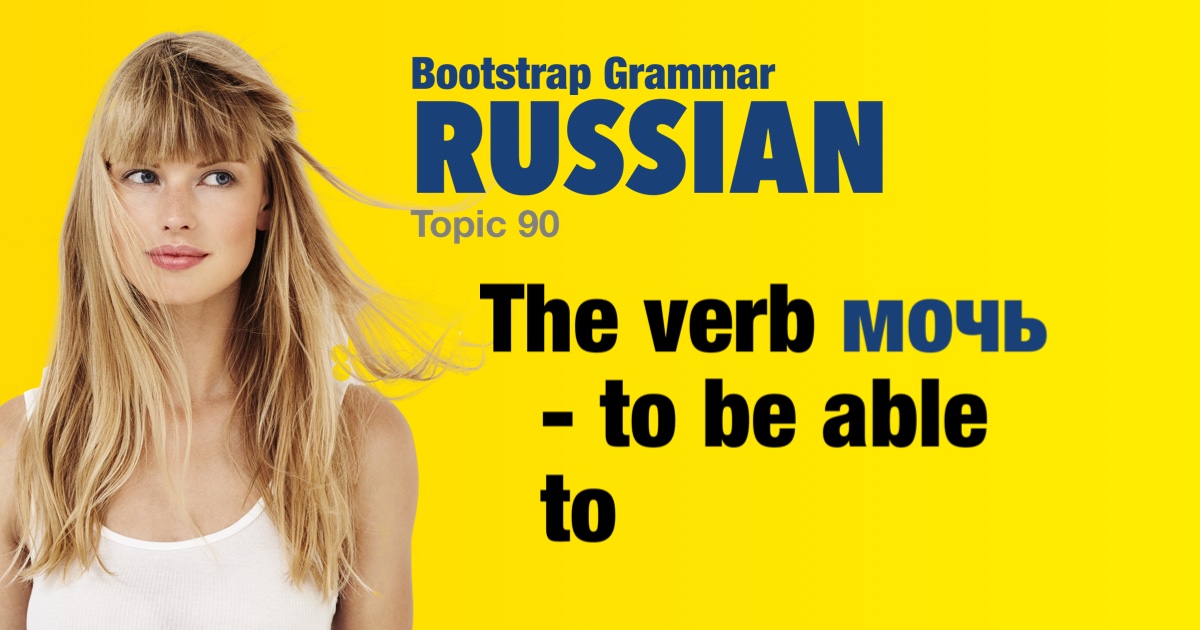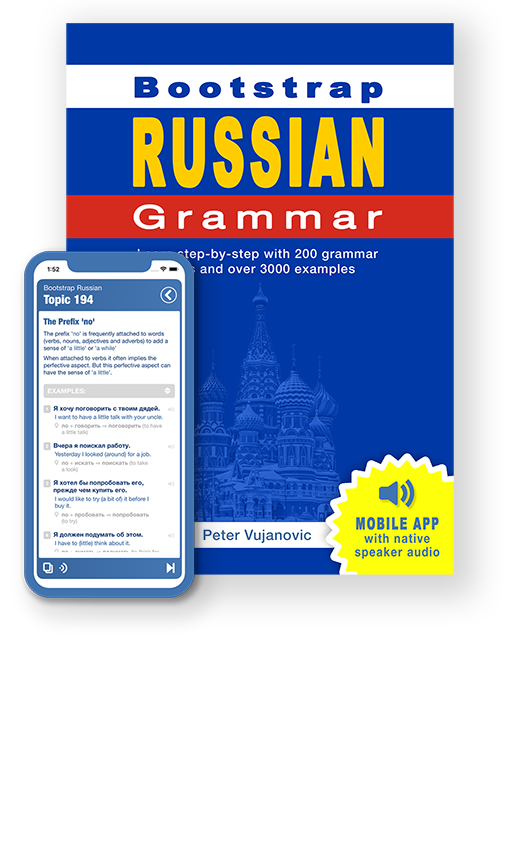Russian grammar - The verb мочь - to be able to |
|||
|
|||
A very common verb that means 'to be able to' in the sense of having the physical ability, opportunity or permission to do something. It conjugates as follows: • Present tense: я могу (I can); ты можешь (you can); он/она/оно может; мы можем; вы можете; они могут It is somewhat irregular in the past tense: • Past tense: он мог, она могла, оно могло, вы/мы/они могли The verb мочь is most commonly paired with a second verb. As in English this should be in the infinite (dictionary) form, amd both perfective and imperfective aspects are possible. |
| Examples: | |
|
Я могу сделать это сам.
I can do it myself.
|
|
|
Он может говорить на китайском языке?
Can he speak the Chinese language?
|
|
|
Ты можешь написать слово «собака» по-русски.
You (informal) can write the word 'dog' in Russian.
|
|
|
Вы можете жить в Лондоне.
You (formal) can live in London.
|
|
|
Мы могли вместе встретить закат.
We could greet the sunset together.
|
|
|
Она может увидеть лодку вдалеке?
Can she see the boat in the distance?
|
|
|
Дети могут играть на улице.
The children can play outside.
|
|
|
Они могут танцевать на столе.
They can dance on the table.
|
|
|
Я не мог работать в выходные.
I wasn't able to work on weekends.
|
|
|
Мы не можем узнать ответ — это тайна.
We can't find out the answer - it's a secret.
|
|
|
Вы можете съесть грушу сейчас.
You (formal) can eat a pear now.
|
|
|
Мы можем сесть у двери?
Can we sit down by the door?
|
|
|
Она не могла стоять на сильном ветру.
She could not stand in the strong wind.
|
|
|
Если ты хочешь, ты можешь.
If you (informal) want, you can.
|
|
|
Вы могли есть мороженое каждый день?
Could you (formal) eat ice cream every day?
|
|
|
Так как самолёт был почти пустой, мы могли сесть, где хотели.
Since the plane was almost empty, we could sit anywhere we desired.
|
|
 |
|




